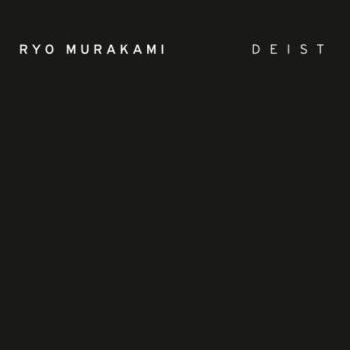Japanese electronic maestros Yellow Magic Orchestra left an indelible mark on the psyche of the country’s music scene. Combining ambient with house with chiptune with almost any other music genres, they rewrote the textbook on musical experimentation and brought Japanese music to the world’s stage. Pair their ground-breaking work with 1990s hip-hop and you start to form an idea of where Osaka-based Ryo Murakami’s musical influences came from. Growing up listening to A Tribe Called Quest, Peanut Butter Wolf and Peace Frog, Murakami exploded onto the music scene in 2007 with trippy house beats and dubby minimal techno.
Championed by electronic ambassador Steve Bug, Murakami’s reputation grew as an innovative producer and as his music evolved, he began to move away from the house scene and into the murkier waters of dark ambient and industrial drone. 2013’s Depth Of Decay, his first long-player, introduced this new sound and now its follow-up continues the inexorable journey into the mire.
Deist delves into the darker realms of industrial minimalism inhabited by the like of Lustmord and Harold Budd. Indeed, opening track ‘Wall’ invokes the hollow echo chambers of Budd’s Abandoned Cities with its throbbing foreboding and nails-on-chalkboard drone, an unrelenting spiral into bleakness, emptiness, loneliness. The title comes from the theory of a belief in a god purely by evidence of reason and nature, and the album clearly gives us a message – if you can accept god is in all the beauty of the world, you must also accept his presence in the piss-soaked underpass under the flickering streetlamp, the rusted, grating metal of industry and the blood-soaked mud of a battlefield.
There is no respite from the darkness here and the record is all the better for it. It forces the listener to confront the twisted shadows inside their own soul, the discordant musical synapses snapping and biting with every note. Watch the video for ‘Bias’ and you’ll see exactly what Murakami wants to convey – smoking, barren desolation, a vision of a soul laid bare.
Murakami employs both traditional instruments as well as found sounds in his music but gives them a dark twist; the double bass in ‘Play’ evokes the Deep South swamps while a watery plasticised vibration whips over it, combining the natural world and the man-made. The jarring juxtaposition of organic and manufactured is a theme which resonates through the entire record, never more so than on ‘Soil And Rain’ with its stormy and bleak landscape, clanging piano and inhuman growls. It’s a gloriously dark piece of music, threatening and unrelenting, a heartbeat slowing, a body bleeding out.
Murakami has created an entire world on this record; imagine the rain-streaked streets of Se7en combined with the corrupted cityscapes of Bladerunner and you can’t go far wrong. It creeps under your skin like an itch, leaving the listener bristling with unease, all while remaining superbly crafted throughout.
<div class="fb-comments" data-href="http://thequietus.com/articles/18863-ryo-murakami-deist-review” data-width="550">


